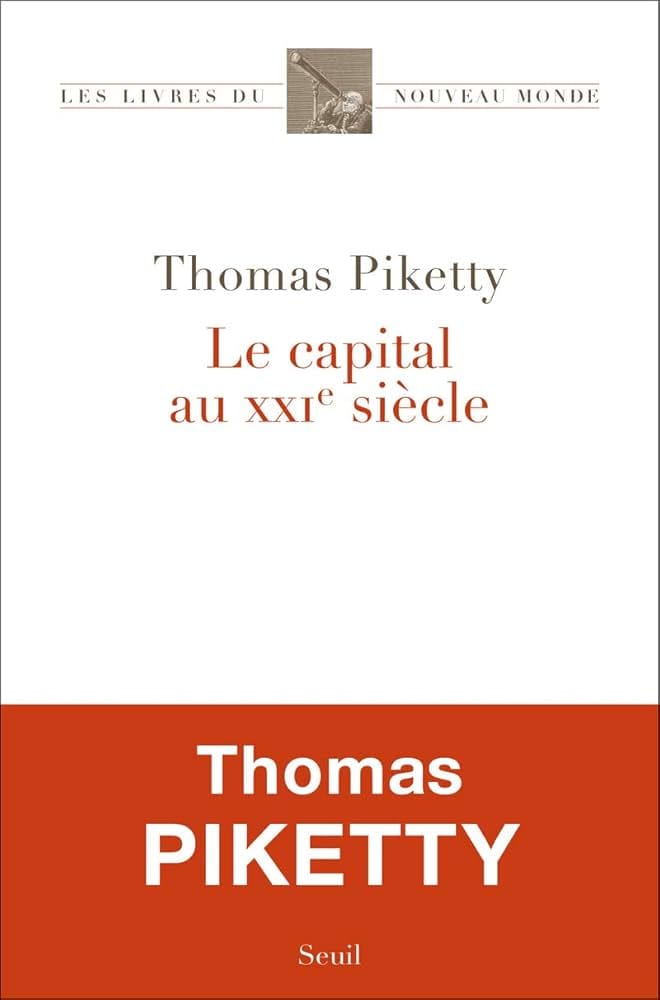Le capital au xxie siècle

Thomas Piketty’s Le Capital au XXIᵉ siècle (Capital in the Twenty-First Century) is a historical and theoretical study of inequality over the past 250 years. His central idea is that capitalism naturally tends to concentrate wealth because the return on capital (profits, rents, dividends, interest) is usually higher than overall economic growth.
r > g
When this inequality holds, wealth accumulates faster than income, allowing those who already own assets to see their fortunes grow much more quickly than the rest of society.
Piketty shows that in the 19th century, wealth was highly concentrated among rentier elites living off inheritance. The shocks of the 20th century—two world wars, the Great Depression, inflation, and progressive taxation—temporarily reduced inequality, especially in Europe and the United States. But since the 1980s, deregulation, lower taxes, and globalization have fueled rising disparities again, with the very rich pulling away both through inherited wealth and massive salaries at the top of corporations.
Using extensive tax and estate records, Piketty demonstrates that wealth inequality is greater and more persistent than income inequality, and that inheritance is regaining importance. He warns that the 21st century could return to levels of inequality similar to those of the 19th century, threatening social cohesion and democracy.
To counter this trend, he advocates progressive taxation on income and inheritance, stronger financial transparency, and, ideally, a coordinated global tax on wealth. While some criticize the feasibility of such proposals, his work powerfully reframes inequality as a structural feature of capitalism rather than a temporary aberration.

Comments ()